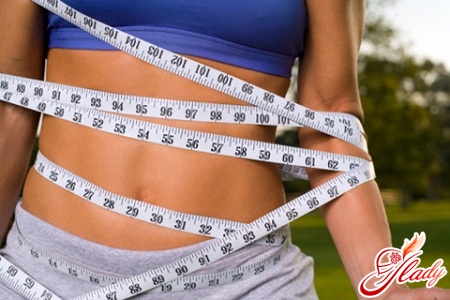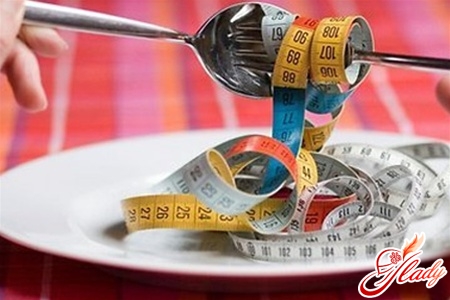 From birth, our body is constantlyneeds energy, which comes from the food we eat. It is food that contains such nutrients as proteins, fats, and carbohydrates. After a person has eaten, the energy is processed and released in the form of heat, which we are accustomed to calling kilocalories. At the same time, one kilocalorie is enough to heat a liter of water to 1 degree Celsius. If we talk about the energy value of each component, then 1 gram of protein contains about 4 kcal, as well as 1 gram of carbohydrates. And 1 gram of fat, according to scientists, contains significantly more kilocalories. Nine units. That is why fatty foods are the cause of extra pounds and extra centimeters at the waist. But not eating fats at all is harmful to the body. By the way, many people get confused in the definitions of calories and kilocalories. Everything is simple here. One kcal contains 1000 calories. And it is in calories that the energy value of a particular product is designated, while a person's daily diet is calculated in kilocalories. Why is this so? Because we eat a lot of food during the day. And if you calculate their energy value in calories, you can simply get confused by the zeros. This is where kcal comes to the rescue. They are much easier to count, and they do not look so threatening due to the lack of a large number of zeros. In the metric system, the equivalent of calories is a joule. On the one hand, it may seem strange that energy and work are designated the same way. However, in order to perform some action, you need to spend a certain amount of energy, right? The more strength a person has, the more things he can do. Hence the relationship. If we talk about a more precise definition, then 1 kcal = 4.1868 kJ. Of course, in everyday life, few people will convert kilojoules to kilocalories. Therefore, in this article we will pay more attention to the system of correct calculation of calories that a person needs for normal life.
From birth, our body is constantlyneeds energy, which comes from the food we eat. It is food that contains such nutrients as proteins, fats, and carbohydrates. After a person has eaten, the energy is processed and released in the form of heat, which we are accustomed to calling kilocalories. At the same time, one kilocalorie is enough to heat a liter of water to 1 degree Celsius. If we talk about the energy value of each component, then 1 gram of protein contains about 4 kcal, as well as 1 gram of carbohydrates. And 1 gram of fat, according to scientists, contains significantly more kilocalories. Nine units. That is why fatty foods are the cause of extra pounds and extra centimeters at the waist. But not eating fats at all is harmful to the body. By the way, many people get confused in the definitions of calories and kilocalories. Everything is simple here. One kcal contains 1000 calories. And it is in calories that the energy value of a particular product is designated, while a person's daily diet is calculated in kilocalories. Why is this so? Because we eat a lot of food during the day. And if you calculate their energy value in calories, you can simply get confused by the zeros. This is where kcal comes to the rescue. They are much easier to count, and they do not look so threatening due to the lack of a large number of zeros. In the metric system, the equivalent of calories is a joule. On the one hand, it may seem strange that energy and work are designated the same way. However, in order to perform some action, you need to spend a certain amount of energy, right? The more strength a person has, the more things he can do. Hence the relationship. If we talk about a more precise definition, then 1 kcal = 4.1868 kJ. Of course, in everyday life, few people will convert kilojoules to kilocalories. Therefore, in this article we will pay more attention to the system of correct calculation of calories that a person needs for normal life.
What does kilocalorie expenditure depend on?
The amount of energy consumed depends onmany factors: age, gender, weight and height of a person. The calculation of calories is also affected by the climate, hormonal balance and lifestyle of a person. The body spends most of its energy on basic metabolic reactions: cardiac activity, breathing, maintaining body temperature and metabolism, as well as on physical activity: sports and physical work. Therefore, it is so important to eat well during heavy loads. Insufficient energy consumption forces the body to turn to reserves, when used up, weight loss occurs. And vice versa, excess calories cause the formation of fat deposits. And where there are deposits, there is excess weight, self-doubt, all sorts of diseases. Even if you are going to eat right, you need not only to choose a diet to your taste, but also to make a competent calculation of the calories you need. For this, there are special tables that accurately indicate the amount of fats, proteins and carbohydrates contained in one hundred grams of the product you have chosen. It is believed that adults who lead a sedentary lifestyle need about 40-50 kcal per 1 kilogram of weight. A man with daily heavy physical activity needs 70-100 kilocalories per 1 kilogram of weight. And for elderly people, according to doctors, only 30-35 kcal per 1 kg will be enough. With children, everything is different. Two thirds of all consumed calories are spent by the child's body on growth processes. Therefore, about 120-130 kilocalories are needed per kilogram of body weight of a child. As you can see, the calculation is quite simple.
How to determine the ideal weight
Now let's figure it out:How to determine the optimal weight? There is a very simple Broca formula for this: height minus one hundred units. So, if a woman's height is 1 meter 75 centimeters, her optimal weight should be seventy-five kilograms. Calculating the calorie content of the diet is also simple. To do this, multiply 50 kcal by the required (or desired) weight of a person. Let's show with an example. If a woman should weigh 75 kilograms, then the calorie content of her food is calculated as follows: 75 x 50 kcal = 3750 kcal. Let's say the real weight of our reader is not 75, but 80 kilograms. That is, the woman is used to consuming about 4000 kcal per day. How can she lose weight? It is enough to just reduce the calorie content of the diet to 3750, and the weight will gradually return to normal. So, if you are going to lose a few extra pounds, remember the main rule: "Don't overdo it!" In the famous novel by American Robert P. Warren, All the King's Men, one of the characters admits that he can't stand skinny women. They say that they rattle and prick like pasta in a pack. Naturally, people are different from spaghetti. And in order for this difference to be more obvious, you need to try to observe moderation in everything. There are infinitely many ways to lose weight. The main thing is to choose the one that suits you and not self-medicate. No matter how successfully you calculate calories, no matter how tempting the bright packages of slimming teas look, be sure to consult a doctor. And we are not talking about consulting a pharmacist at a pharmacy. Because it is not enough to simply translate the names of ingredients from a foreign language. It is more important to correctly prescribe this very list, to calculate: how many kilocalories you personally need. And only a doctor can do this.
Less eat - less weigh
If you have good health andIf you plan to lose 5-7 kg on your own, use "shock diets". The difference between them and therapeutic fasting is that with a "shock diet" you continue to eat regularly. But only a strictly defined set of products. You can easily find recipes for such nutrition methods in numerous reference publications on health improvement. An example of a "shock diet" can be the so-called split diet, which is particularly effective. It is based on the principle of separate consumption of products of different categories, which allows the body to better absorb food.
- Variant of "shock diet":
Have a vegetable day on Monday,Tuesday - meat, Wednesday - egg, Thursday - dairy, Friday - fish, Saturday - fruit, Sunday - eat whatever you want. This way you can lose 5-7 kg in just three weeks. There are several types of "shock diets". They all differ slightly from each other and, as a rule, the calculation is based either on reducing the calorie content of food or on reducing the consumption of liquid, fats and carbohydrates. Therefore, if you start this method of losing weight without consulting a doctor, follow the main rule: listen to the reaction of your body. Do not bring yourself to illness because of the desire to quickly get rid of excess weight. If you feel dizzy and lose your appetite, then most likely the "shock diet" is not for you. Turn to more reliable and long-term methods. Live by the motto: "Don't get fat!" Lose weight slowly, count calories. Remember: the faster the body loses extra pounds, the easier it gains them back. Do not reduce the number of meals, eat more often, but in small portions. When the body is hungry, it releases toxins. Less sweets, canned goods, salt and alcohol (a glass of wine is already 100 calories)! Drink juices in the morning and do not overeat at night. The period of the highest activity of the digestive system is from 12 to 17 hours.
Physical education every day
And, most importantly, you can’t do without physical education.You can choose anything: aerobics or shaping, exercise machines or exercises on TV, yoga or dancing. They are all aimed at improving the health of the body and differ only in the approach. But the most accessible of all is ordinary morning (afternoon, evening, whatever you like) gymnastics. Ten minutes of exercise every day, and graceful forms are guaranteed. Just don’t say that your lifestyle does not allow you to take care of yourself. If you do not have ten minutes to exercise during the day, or you do not want to eat less, then it is not your lifestyle that is to blame, but ordinary laziness. Only in fairy tales do wonderful fairies solve problems with one wave of a magic wand. In life, you have to sweat to achieve the desired goal. We recommend reading:









